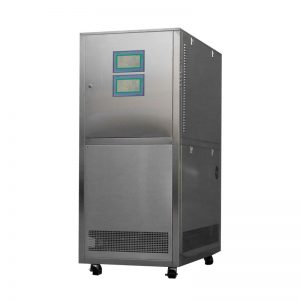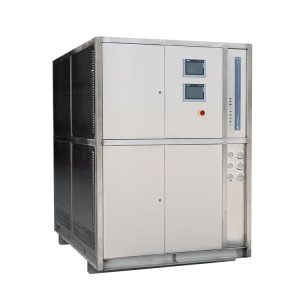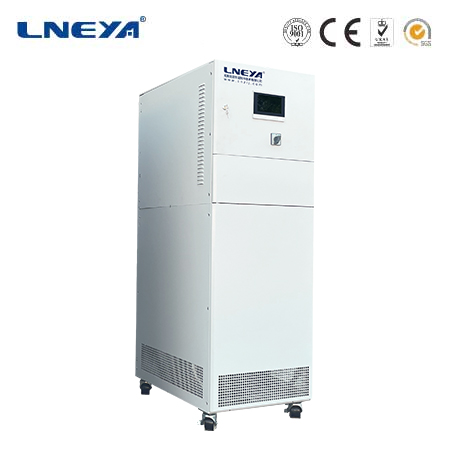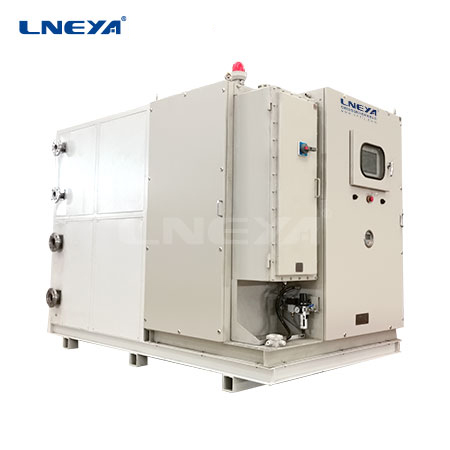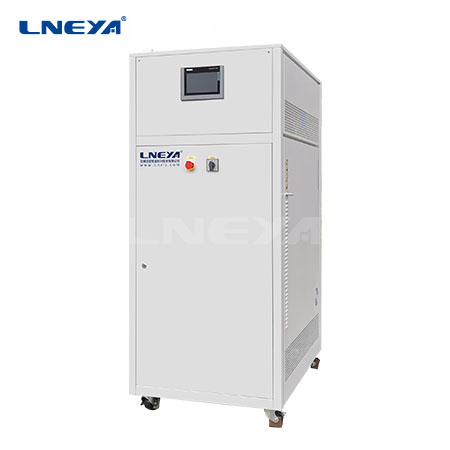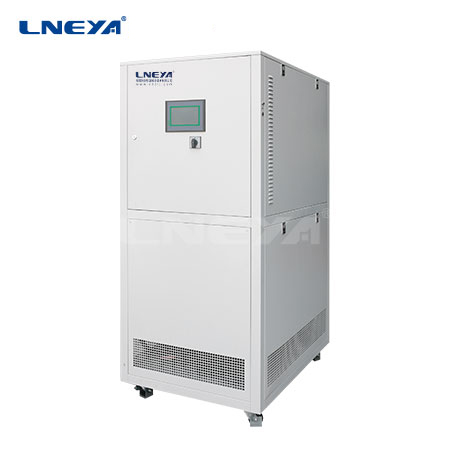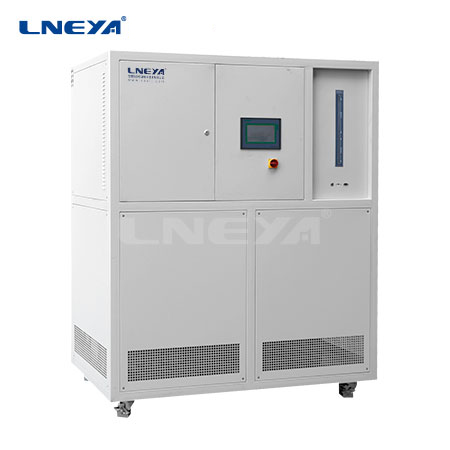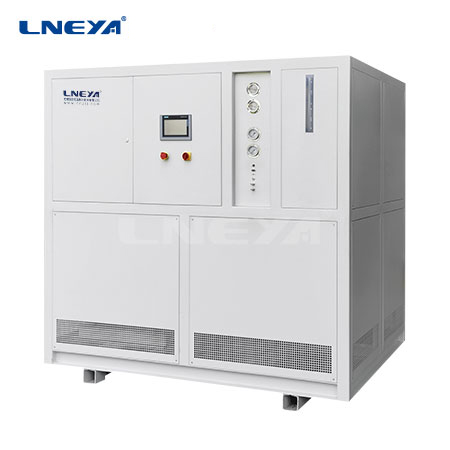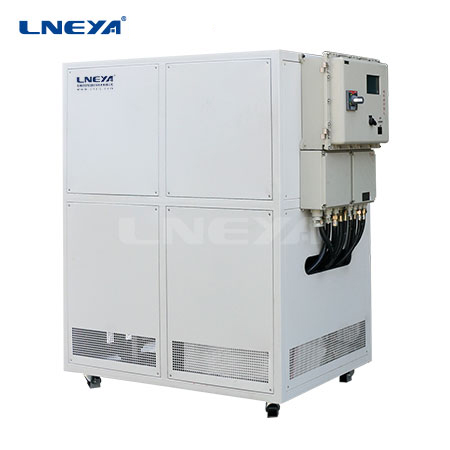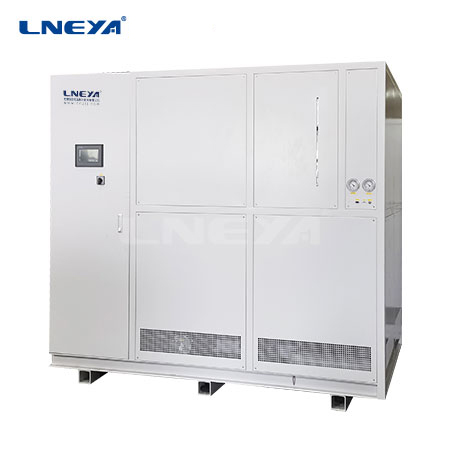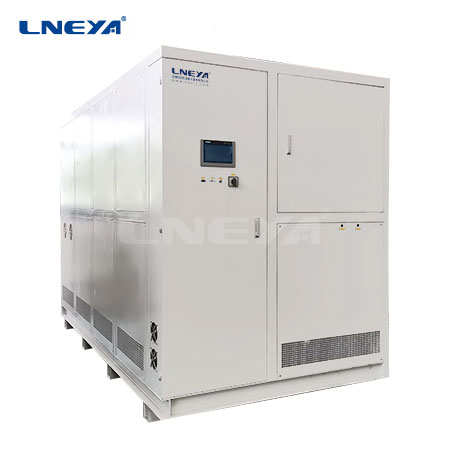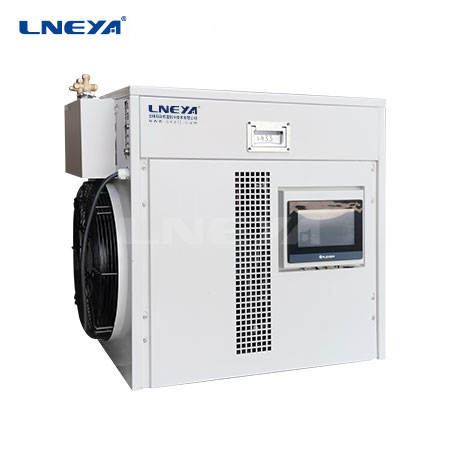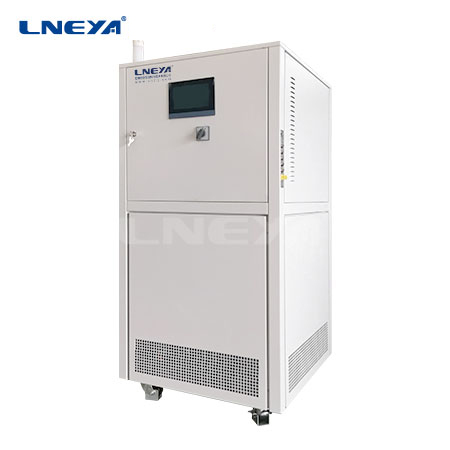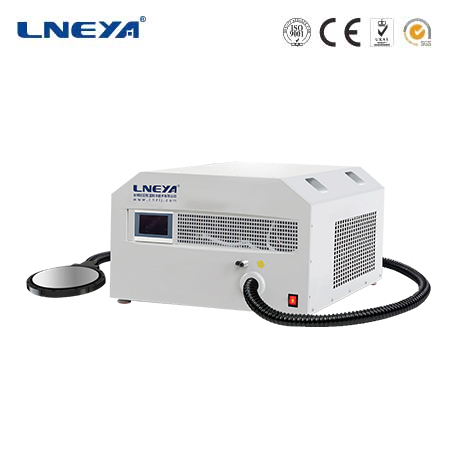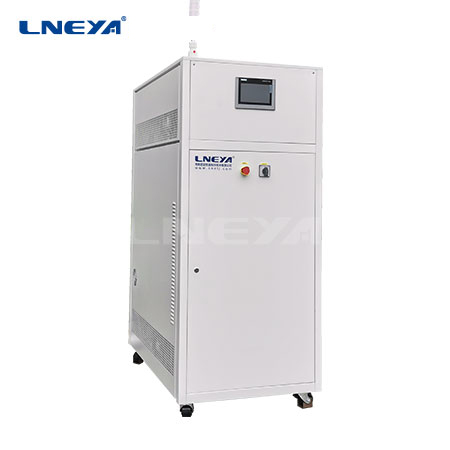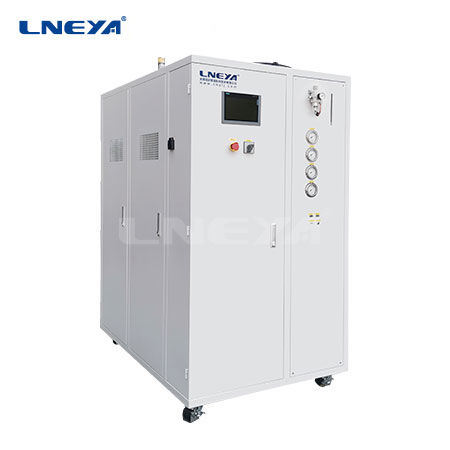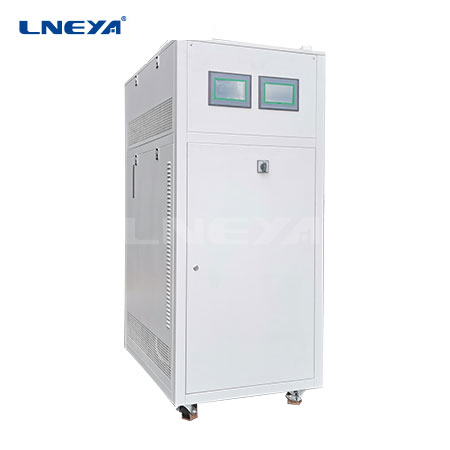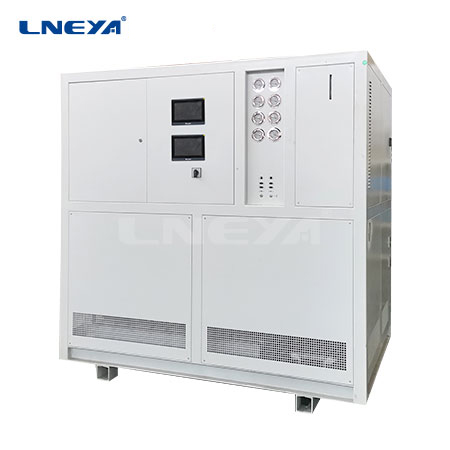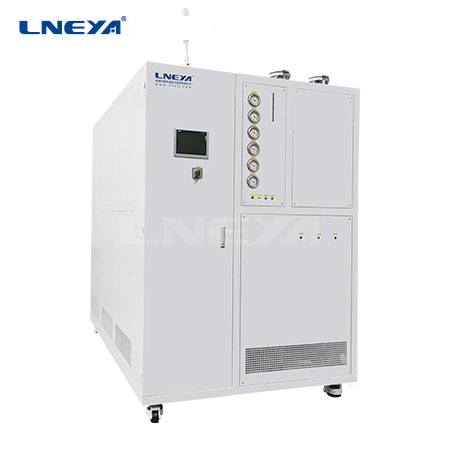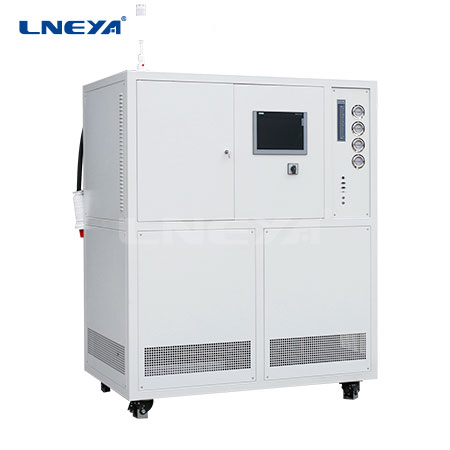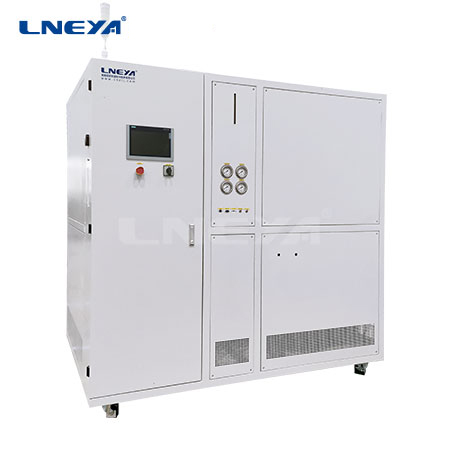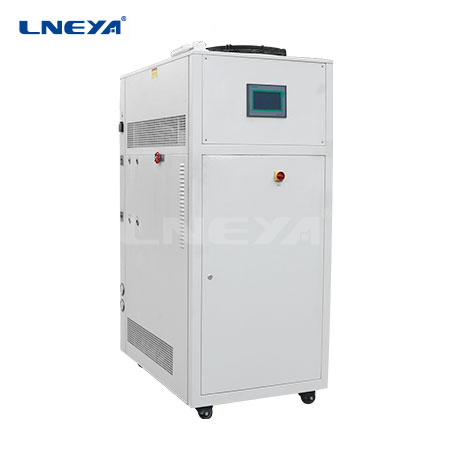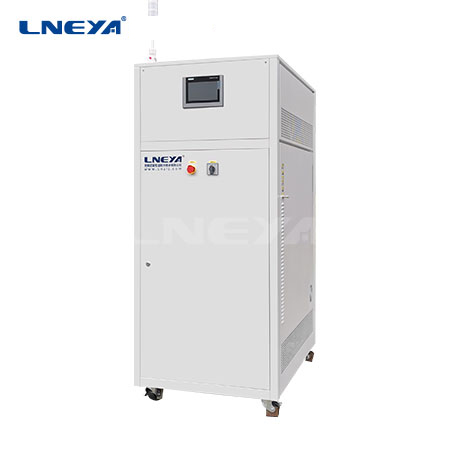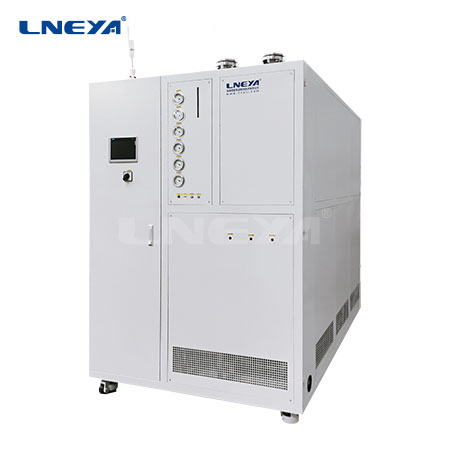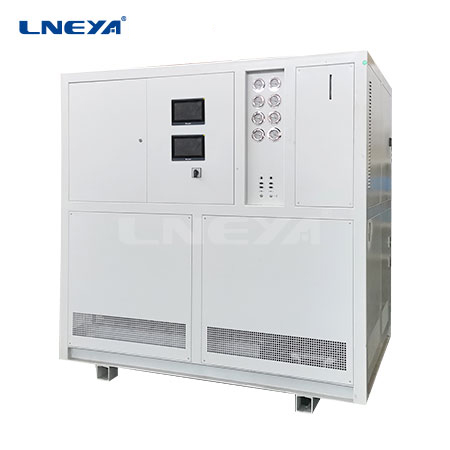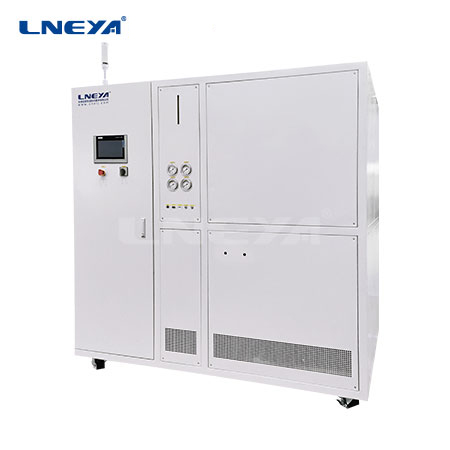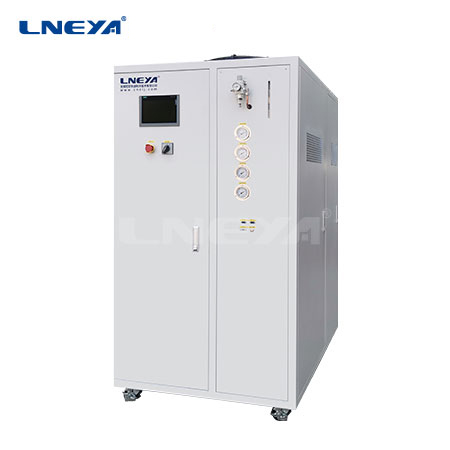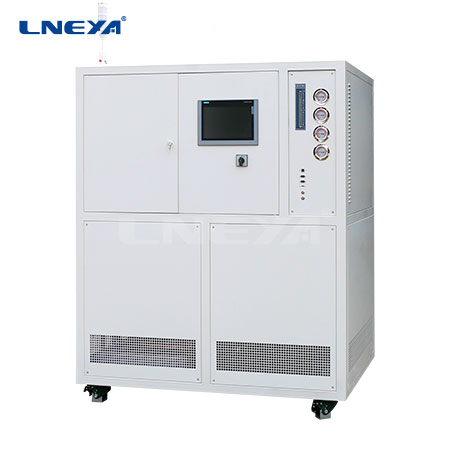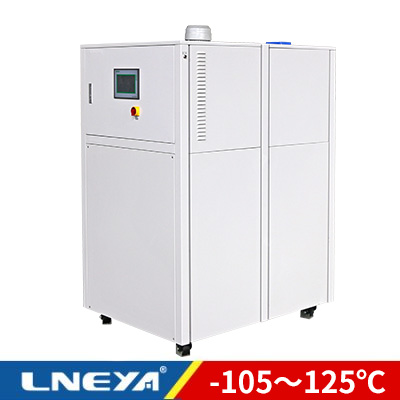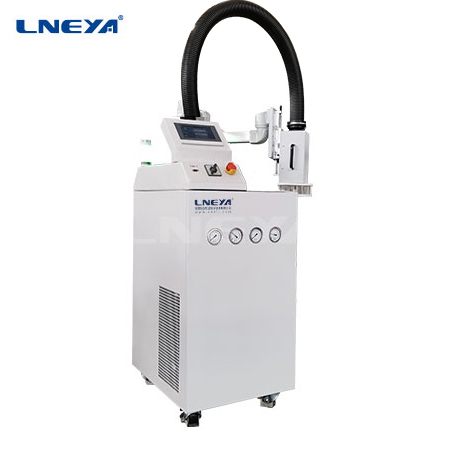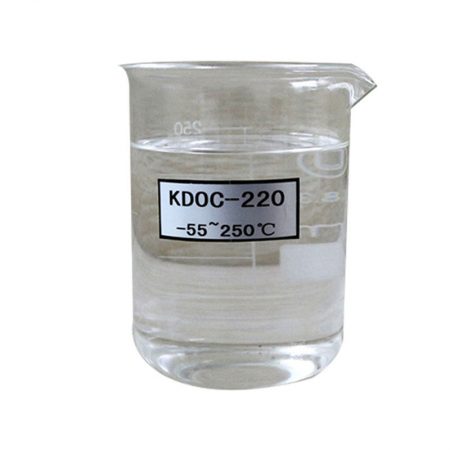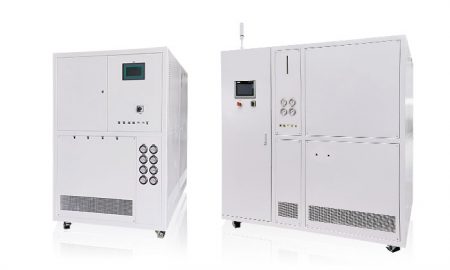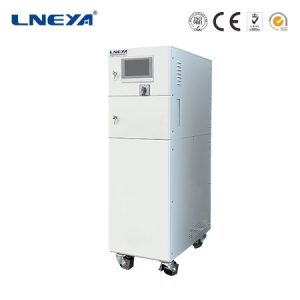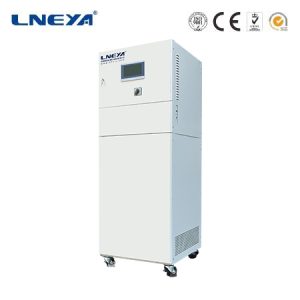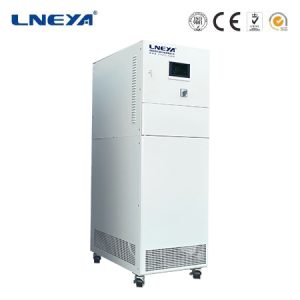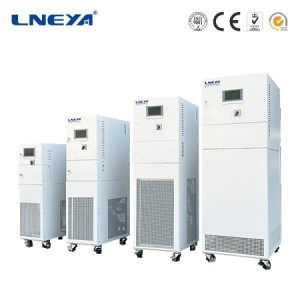Industrial Liquid Cooling System
Свяжитесь с нами сегодня, чтобы получить идеальное решение для контроля температуры
An industrial liquid cooling system is a way of dissipating heat from electronic equipment by flowing a liquid (usually water) through the heat sink of the electronic equipment, absorbing the heat generated by the equipment, and then removing the heat, thereby reducing the temperature of the equipment. Compared with traditional air cooling methods, liquid cooling can more effectively reduce the temperature of the equipment and improve the performance and life of the equipment.
Liquid cooling technology is mainly divided into two types: direct liquid cooling and indirect liquid cooling. Direct liquid cooling refers to flowing liquid directly through the radiator of the electronic device to remove the heat. Indirect liquid cooling involves flowing a liquid through a heat exchanger, transferring heat to another liquid through the heat exchanger, and then taking the heat away. Direct liquid cooling is more efficient but requires higher maintenance costs and a more complex design.
Liquid cooling technology has been widely used in high-performance computing, data centers, artificial intelligence and other fields. As the performance of electronic equipment continues to improve, heat dissipation issues have become more and more prominent. Liquid cooling technology will become one of the mainstream methods of heat dissipation for electronic equipment in the future.

The principle of industrial liquid cooling system:
The principle of industrial liquid cooling system is to reduce the temperature of the equipment by flowing liquid (usually water) through the radiator of electronic equipment, absorbing the heat generated by the equipment, and then taking the heat away. Liquids conduct heat better than air, so liquid cooling can remove the heat generated by the device faster.
Liquid cooling systems usually consist of radiators, water pumps, water pipes, and water tanks. Liquid cooling systems move liquid through a radiator, and the fins in the radiator allow the liquid to more easily absorb the heat generated by the device. The water pump then flows the liquid with the heat into the tank, where a radiator dissipates the heat to the surrounding environment. Liquid cooling systems can control the temperature of the device by adjusting water flow and water temperature.
Liquid cooling technology is mainly divided into two types: direct liquid cooling and indirect liquid cooling. Direct liquid cooling refers to flowing liquid directly through the radiator of the electronic device to remove the heat. Indirect liquid cooling involves flowing a liquid through a heat exchanger, transferring heat to another liquid through the heat exchanger, and then taking the heat away. Direct liquid cooling is more efficient but requires higher maintenance costs and a more complex design.
Advantages of industrial liquid cooling system:
Compared with traditional air cooling methods, industrial liquid cooling system has the following advantages:
Higher heat dissipation efficiency: Liquid cooling technology can reduce the temperature of the device more effectively and improve the performance and life of the device. Liquids conduct heat better than air, so liquid cooling can remove the heat generated by the device faster.
Lower noise: Compared with the noise generated by fans, liquid cooling has lower noise and can provide a quieter working environment.
More flexible design: Liquid cooling technology allows for more flexible design, and the radiator and liquid pipeline can be installed in different locations to better adapt to the design requirements of the equipment.
More environmentally friendly: Liquid cooling can save energy and reduce environmental impact. The liquid can be recycled more easily than the heat generated by the fan.
The disadvantages of liquid cooling technology are higher costs, higher maintenance costs and more complex designs. However, as the performance of electronic equipment continues to improve, heat dissipation issues have become more and more prominent. Liquid cooling technology will become one of the mainstream methods of heat dissipation for electronic equipment in the future.
Электронная почта: info@lneya.com WeChat ID: +8615251628237 WhatsApp: +86 17851209193
 Прецизионные охладители / Малые охладители
Прецизионные охладители / Малые охладители
Чиллер может широко использоваться в различных отраслях промышленности и лабораториях, а также поддерживает индивидуальный дизайн.
| Диапазон температур | -18°C ~ +30°C | Серия +5°C ~ +35°C |
| Мощность охлаждения | 0,35 ~ 0,9 кВт | 1,8 ~ 50 кВт |

Рециркуляционные чиллеры
Наш рециркуляционный охладитель использует низкотемпературную технологию охлаждения, температура составляет до -120℃, а различные аксессуары могут быть настроены.
| Диапазон температур | Серия -25°C ~ +30°C | Серия -45°C ~ +30°C | Серия -60°C ~ -20°C | Серия -80°C ~ -20°C | Серия -120°C ~ -70°C |
| Мощность охлаждения | 0,8 ~ 30 кВт | 0,75 ~ 12 кВт | 0,4 ~ 6 кВт | 0,2 ~ 6 кВт | 0,3 ~ 5 кВт |

Низкотемпературные чиллеры
Мы специализируемся на производстве низкотемпературных чиллеров с диапазоном регулирования температуры до -150°C, которые могут удовлетворить потребности в охлаждении различных отраслей промышленности.
| Диапазон температур | Серия -25°C ~ -5°C | Серия -45°C ~ -10°C | Серия -60°C ~ -10°C | Серия -80°C ~ -30°C | Серия -110°C ~ -50°C | Серия -150°C ~ -110°C |
| Мощность охлаждения | 12 ~ 360 кВт | 6 ~ 180 кВт | 6 ~ 180 кВт | 4 ~ 180 кВт | 2 ~ 120 кВт | 2,5 ~ 11 кВт |
Моделирование температуры для проверки качества автомобиля: проверка срока службы аккумулятора, стенд для проверки топливных форсунок/моторов, проверка подушек безопасности, стенд для проверки компонентов и т.д.

Подходит для точного температурного контроля электронных компонентов. При производстве полупроводниковых электронных компонентов для жестких условий эксплуатации этапы сборки, проектирования и производственного тестирования упаковки ИС включают в себя тепловые испытания электронных компонентов и другие симуляции испытаний на воздействие окружающей среды.
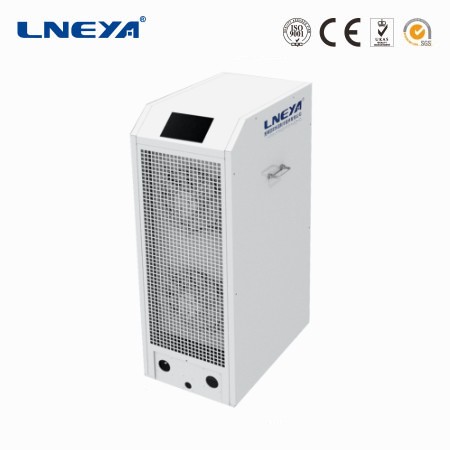
Жидкостное охлаждение для аккумуляторных систем хранения энергии
| Типы | Для конвертерной станции | Для аккумуляторов энергии | Для зарядной станции |
| Мощность охлаждения | 45 кВт | 5 ~ 8,5 кВт | 4 кВт |

Серия ZLFQ
Блок распределения охлаждающей жидкости
Оборудование для жидкостного охлаждения подходит для тестирования полупроводников, электронного оборудования с постоянной температурой, охлаждения инфраструктуры поддержки серверов и других мест контроля температуры жидкости.
| Диапазон температур | +5°C ~ +35°C | +5°C ~ +35°C |
| Мощность охлаждения | 15 ~ 150 кВт | 200 ~ 500 кВт |

Серия термозажимных патронов MD
Он используется для тестирования радиочастотных устройств и силовых приборов высокой плотности (IGBT и MOSFET), а также может применяться для быстрого охлаждения лабораторных плоских панелей (плазма, биологические продукты, батареи) и т.д.
| Диапазон температур | -75°C ~ +225°C |
| Точность температуры | ±0.1℃ |

Шнековые чиллеры (Индивидуальные дизайны)
Низкотемпературные винтовые холодильники и винтовые холодильники комнатной температуры
| Диапазон температур | +5°C ~ +30°C | +5°C ~ +30°C | +5°C ~ +30°C | +5°C ~ +30°C | -25°C ~ +5°C | -25°C ~ +5°C |
| Мощность охлаждения | 107 ~ 1027 кВт (один компрессор) | 299 ~ 2134 кВт (двойной компрессор) | 98 ~ 934 кВт (один компрессор) | 272 ~ 1940 кВт (двойной компрессор) | 48 ~ 467 кВт (один компрессор) | 51 ~ 497 кВт (одиночный компрессор) |
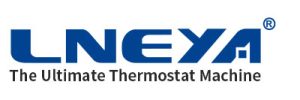 ЛНЕЙЯ
ЛНЕЙЯ
 简体中文
简体中文










